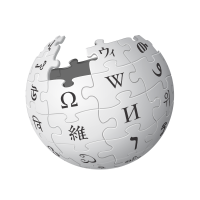Skip to content The Sovereign Gazette
The Sovereign Gazette
The Sovereign Gazette, Issue 1
 Enemies of Free Society
Enemies of Free Society
In 1945, Karl Popper wrote a critique against the enemies of the open society: The Open Society and Its Enemies. Having lived through 2 world wars, he was looking for the root causes of these wars and the destruction of projects to improve upon personal freedom of thought and action. This section will be a recurring part of The Sovereign Gazette, identifying people and groups that are acting against liberty.

The Open Society and Its EnemiesSee more
Last edited: Fri, Jun 28, 2024
The Open Society and Its Enemies is a work on political philosophy by the philosopher Karl Popper, in which the author presents a "defence of the open society against its enemies", and offers a critique of theories of teleological historicism, according to which history unfolds inexorably according to universal laws. Popper indicts Plato, Hegel, and Marx for relying on historicism to underpin their political philosophies.
Written during World War II, The Open Society and Its Enemies was published in 1945 in London by Routledge in two volumes: "The Spell of Plato" and "The High Tide of Prophecy: Hegel, Marx, and the Aftermath". A one-volume edition with a new introduction by Alan Ryan and an essay by E. H. Gombrich was published by Princeton University Press in 2013. The work was listed as one of the Modern Library Board's 100 Best Nonfiction books of the 20th century.
The book critiques historicism and defends the open society and liberal democracy. Popper argues that Plato's political philosophy has dangerous tendencies towards totalitarianism, contrary to the benign idyll portrayed by most interpreters. He praises Plato's analysis of social change but rejects his solutions, which he sees as driven by fear of change brought about by the rise of democracies, and as contrary to the humanitarian and democratic views of Socrates and other thinkers of the Athenian "Great Generation". Popper also criticizes Hegel, tracing his ideas to Aristotle and arguing that they were at the root of 20th century totalitarianism. He agrees with Schopenhauer's view that Hegel "was a flat-headed, insipid, nauseating, illiterate charlatan, who reached the pinnacle of audacity in scribbling together and dishing up the craziest mystifying nonsense." Popper criticizes Marx at length for his historicism, which he believes led him to overstate his case, and rejects his radical and revolutionary outlook. Popper advocates for direct liberal democracy as the only form of government that allows institutional improvements without violence and bloodshed.
en.wikipedia.org
$47,000 of New Regs Per Household
UK goes after its Citizens
CCP Targets Taiwanese
Anything but “Brotherhood”
Milton Friedman vs Joseph Stiglitz
Want to print your doc?
This is not the way.
This is not the way.

Try clicking the ⋯ next to your doc name or using a keyboard shortcut (
CtrlP
) instead.